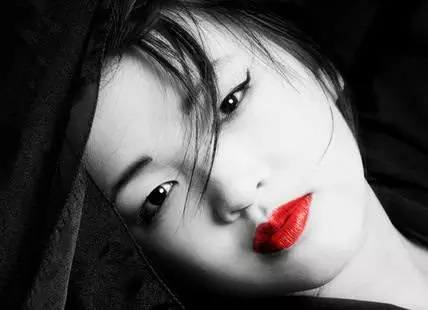
Opera still makes me uncomfortable. Partly it is the unfamiliarity – I managed to spend most of my adult life in contented ignorance so I suppose it’s just that I don’t entirely get what the heck is going on. Partly it’s social too. Tweet that you’re at the opera and the responses range from simple disbelief to outright derision, even from types you’d imagine sympathetic to the arts. Owing to the discomfort I tend to revert to my default position. I get flippant and facetious. I was doing it last night even during the performance. It’s got to stop.
So, Madama Butterfly. I went to see it last night at the Grand at short notice (thanks Emma, though I did wonder if the tickets ought not to have gone to our theatre or music editors – actually, where does opera sit anyhow? theatre? music? endurance sport? . . . see, can’t help myself.) It was only my third opera, ever. I couldn’t have hummed any of the tunes. Wouldn’t be able to name a single member of the cast. I didn’t even know the story.
The story . . . this is something I can understand, so here goes.
Butterfly is a geisha, from a rich but ruined family, reduced to selling para-sexual services (no, that doesn’t mean she services men who drop out of planes and invade small countries!) to support herself and a couple of servants. She falls in with a marriage broker (though pimp with pretensions is perhaps a more accurate term) who fixes her up with an American, Benjamin Franklin Pinkerton. Pinkerton is 1: American, 2: a sailor, 3: wearing a white suit, so we know from the start the guy is going to be a proper tosser.
In fact, Pinkerton is the nineteenth century version of Gary Glitter, gadding about the world as a kind of exchange rate sex tourist, procuring gullible minors for immoral acts. Butterfly is fifteen, the age for reading stories not copping off with randy Yankees twice her age, as one of the wiser characters points out. Unfortunately, Butterfly is a bit gormless, starstruck, and wants out of her straightened circumstances and rid of her restrictive culture. She thinks America is the land of riches and freedom. Like I said, deluded.
They get married. She moves into Pinkerton’s new place. The family disown her. Butterfly owns a knife – even Crocodile Dundee would agree, that is definitely a knife – the one her father used when the Emperor asked him to do the decent thing. We have no doubt where the knife will end up by Act 5, Scene 5.
Pinkerton gets his conjugals right before the interval then sods off back to the States. He’s already admitted he’s after a “proper wife” when he gets home. Butterfly, like the good romantic heroine she is, spends the rest of her time huffing and sighing, flouncing around and making everyone’s life a total misery. She’s in her late teens but she seems incapable of even spelling fun. She has a child. The marriage broker tries to negotiate a deal with a doddering old guy. Well meaning people try talking some sense into her.
Pinkerton returns. He has a blond in tow. Surprise, surprise, he’s not keen on catching up with Butterfly, sharing a saki or two, and laughing about the good old days. He writes a Dear John letter and gets his mate the Consul to deliver it, cowardly little creep that he is. Butterfly is impervious to the truth and sings some beautiful song detailing her outrageous delusions. We feel a bit sorry for her predicament but find it hard to resist shouting “wake up, darling . . . good riddance to bad rubbish!”
Pinkerton and the new missus unilaterally declare they are taking custody of the offspring. Sorry and all that, hope you’ll forgive us, but really it’s for the best. Butterfly takes the news badly. She does what any self respecting romantic heroine would do in the circumstances. Cue the knife.
Before disembowelling herself in front of her toddler she shrieks in the poor bairns face for a good five minutes, telling him he’ll never see mummy again, he’s going far away over the sea, kidnapped by strangers. But don’t worry son, it’s all fine. This is the sort of behaviour labelled “inappropriate” and “dysfunctional” these days of political correctness gone doolally. But then, can you imagine an opera based in a Social Services Child Protection Unit?
Butterfly dies. Pinkerton scarpers. It’s a tragedy.
Fortunately opera is a hell of a lot more than just a silly story. I only wish I could do justice to the singing and the music but I sadly don’t have the vocabulary beyond the “ooh” and “eek” and “bloody amazing.” And it is indescribably thrilling to be only feet away from people who can make that kind of noise without the assistance of amplification. All I can say is don’t let the piss takers put you off. Go and make your own mind up. It’s on at the Grand Theatre until 18th Feb . . . which I just realised was yesterday . . . oh bugger, your loss! You could always go to Salford.